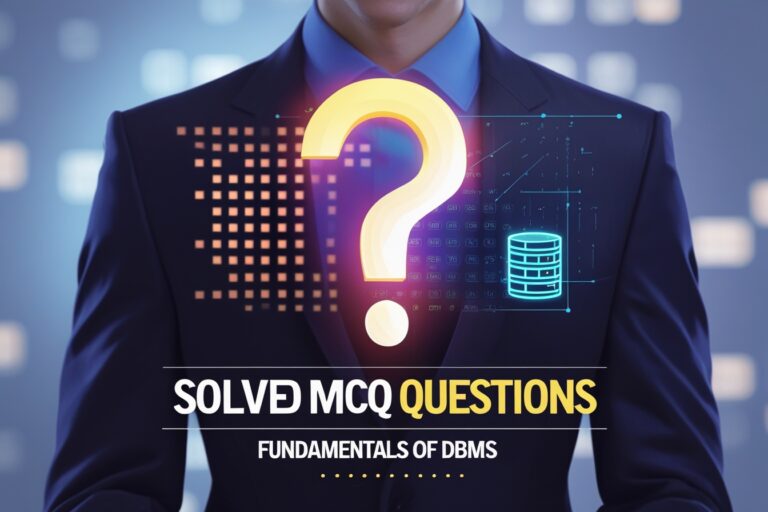1. Processed data is called ………………..
A) Raw data
B) Information
C) Useful data
D) Source
2. …………….. is a utility to capture a continuous record of server activity and provide auditing capability.
A) SQL Server Profile
B) SQL server service manager
C) SQL server setup
D) SQL server wizard.
3. Data items grouped together for storage purposes are called a
A) record
B) title
C) list
D) string
4. …………. contains data assisting day to day activities of the organization.
A) Control database
B) Operational database
C) Strategic database
D) Sequential database
5. ………………… approach reduces time and effort required for design and lesser risk in database management.
A) Single global database
B) Top-down approach
C) Multiple databases
D) None of the above
6. HSAM stands for ……….
A) Hierarchic Sequential Access Method
B) Hierarchic Standard Access Method
C) Hierarchic Sequential and Method
D) Hierarchic Standard and Method
7. SQL server stores index information in the ………… system table
A) syst indexes
B) system indexes
C) sysind
D) sys indexes
8. The one guideline to be followed while designing the database is
A) A database design may be ambiguous.
B) Unrelated data should be at the same table so that updating the data will be easy.
C) It should avoid/reduce the redundancy.
D) An entity should not have attributes.
9. Which of the following is not a logical database structure?
A) Chain
B) Network
C) Tree
D) Relational
10. ……………. is a preferred method for enforcing data integrity
A) Constraints
B) Stored procedure
C) Triggers
D) Cursors
We have created a quiz including Solved MCQ Questions on DBMS. Please take this quiz to test your knowledge on DBMS fundamentals.
Quiz for Fundamentals of DBMS
Answers:
1. B) Information
2. B) SQL server service manager
3. A) record
4. B) Operational database
5. C) Multiple databases
6. A) Hierarchic Sequential Access Method
7. D) sys indexes
8. C) It should avoid/reduce the redundancy.
9. A) Chain
10. A) Constraints
Read Next: Objective Questions of Database Management System (DBMS) set-8
We have created a video on YouTube including a Solved MCQ Questions on DBMS. Please watch the video and subscribe to our channel to get more videos on DBMS.









